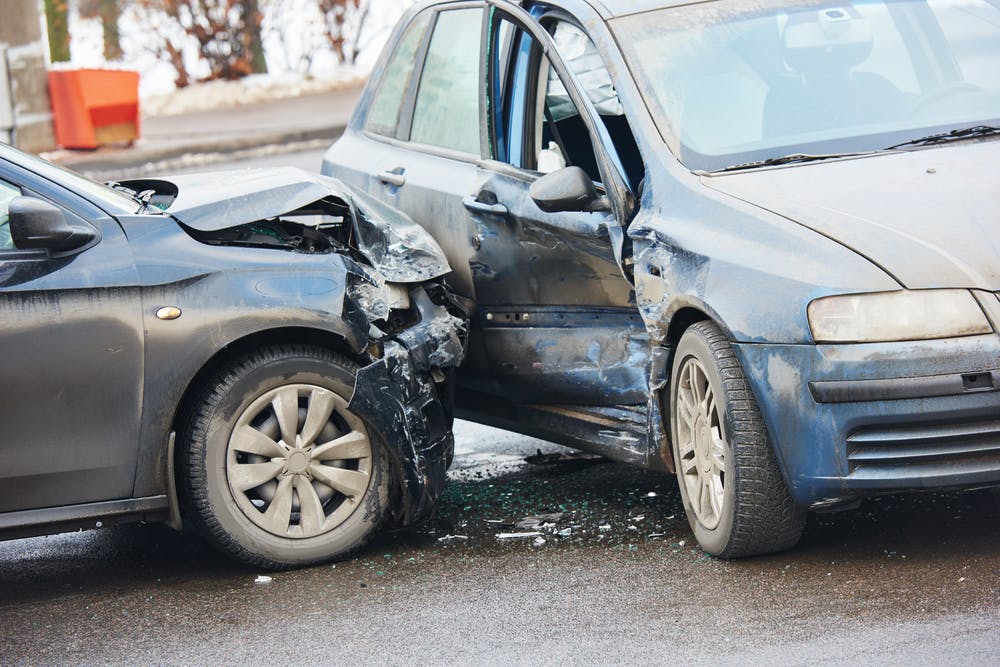
With so many charming and wide-open landscapes, it can be hard to believe that Georgia ranks amongst the top states for motor vehicle crashes. The statistics do not lie. The state reported over 1470 fatalities in 2022 while thousands more were left to deal with devastating injuries.
Fortunately, there are laws in place to protect the rights of victims and hold the culprits responsible after a crash.
Georgia Car Accident Laws – An Overview
In Georgia, you are legally obligated to report your car crash if it resulted in:
- Injuries to anyone, no matter how minor or serious. This includes injuries to drivers, passengers, pedestrians, or anyone else involved
- Death of someone
- Property damage more than $500
You should call the local police or the Georgia State Patrol and report what happened, even if it was a minor fender bender. If you fail to do so, you can open yourself up to serious legal consequences and lose your chance to recover compensation for your damages.
If your crash meets any one or more of the three criteria listed above and you did not report it, you could face criminal charges. One motorist could claim the crash as a hit-and-run accident because the other driver drove away and left the scene. This could result in fines, driver’s license suspension, or time in jail.
When someone is severely injured or succumbs to their accident injuries, leaving the site can result in a felony hit-and-run charge. In Georgia, this can result in up to five years of imprisonment. Plus, if you were the one responsible for the collision and left without calling 911 or emergency services, the injured driver or their family can sue you for damages.
Georgia’s Fault System for Car Accidents
Whenever there is a crash, one of the first questions that comes up is who is to blame. There are two systems designed to deal with this: at-fault and no-fault.
The “at-fault” system helps decide who is responsible for causing the accident. This is the one followed by the state of Georgia. Here, the driver who is found to be at fault for the crash is liable for paying for the damages. This system stands in contrast to “no-fault” states, where each driver’s insurance covers their own damages, regardless of who is at fault.
This is why the process of recovering compensation in car accident claims in Georgia is a bit more complicated than in states that follow the no-fault rule. If you want to file a lawsuit against someone, you have to prove that they caused the crash that resulted in your injuries. This can only be done via a thorough investigation of several factors, including:
- The official police report
- Eyewitness testimonies
- Evidence showing if any traffic laws were violated (e.g., running a red light, speeding, failing to yield the right of way)
- Physical evidence such as skid marks, damage to the cars, and the positioning of cars
- Video footage of the accident as captured on surveillance cameras, dashcams, or smartphones
- Statements made by the drivers, such as an admission of fault or responsibility at the scene
The at-fault system is also why drivers are required to have minimum liability insurance to cover damages they may cause to others. These amounts are:
- At least $25,000 per person for bodily injury or death
- At least $50,000 per accident for bodily injury or death
- At least $25,000 per accident for damage to another person’s vehicle or other property
The at-fault driver’s liability coverage can pay for the other party’s medical bills, vehicle repairs, and other related expenses. This also includes protection against uninsured and underinsured drivers. If you are in an accident with someone who does not have insurance or does not have enough insurance to cover your bills, your Uninsured/Underinsured Motorist Coverage can help fill the gap up to the limits you have in your policy.

What Is the Statute of Limitations for Car Accident Claims in Georgia?
The law may be on your side, but it is bound by a specific timeframe. From the date of the crash, you have two years to take legal action to recover compensation. If you wait too long and try to file a lawsuit after this two-year period, the court may dismiss your whole case. But there are some exceptions to this two-year rule.
Sometimes, injuries from an accident do not show up immediately. In such cases, the two-year deadline begins from the date when the injury is discovered or reasonably should have been discovered.
If one of the injured victims is a minor, the two-year deadline usually starts on their 18th birthday. If a child was injured at the age of 10, they have until their 20th birthday to file a lawsuit.
When the at-fault party is a government employee or organization, there are shorter timeframes for filing a Notice of Claim, which is a prerequisite to a lawsuit. Negligence claims against a local government agency are to be filed within six months from the date of the injury or accident, while claims against the state of Georgia or the county government must be filed within one year.
In case of death, the family or estate of the deceased has two years from the date of the death to file a wrongful death claim.
What Is the Comparative Negligence Rule in Georgia?
Imagine you and another driver collide with one another. In Georgia, it’s possible for both of you to share some of the blame. Comparative negligence is the system that helps figure out how much each driver is at fault and how the compensation should be calculated.
First, the court or an insurance adjuster determines the amount of fault for each party. This is expressed as a percentage. For instance, they might say you are 20% at fault, and the other driver is 80% at fault.
Georgia follows a modified comparative negligence rule, which dictates that you can seek compensation from the other party as long as you are less than 50% at fault. But the amount you receive will be reduced by your percentage of fault. If you are 20% at fault and your damages are $10,000, you will receive $8,000.
What happens if your share of the blame is 50% or more? You cannot get anything in that case, even if the other driver was also equally responsible.
What Are Your Rights as an Injured Victim?
The injured victim must file a claim with the at-fault driver’s insurance company to cover their medical expenses, lost wages, etc. Georgia law requires drivers to carry insurance to provide financial protection in situations just like these.
However, if the insurer makes a lowball settlement offer, you should consider filing a personal injury lawsuit against the liable driver. This way, you can seek compensation for your medical care, lost pay, pain and suffering, emotional distress, and other losses.
In addition, you may want to check your auto insurance policy to see if it includes the Medical Payments (MedPay) coverage. MedPay works just like health insurance, but it only applies after a crash. It can cover the following medical expenses entirely or partially, regardless of who caused the crash:
- EMT and ambulance fees
- Hospital visits
- X-rays and other diagnostic services
- Surgeries
- Prostheses
- Professional nursing care
- Doctor’s appointments
- Dental care
- Ongoing rehabilitation and therapy
- Funeral and burial expenses
MedPay is optional, not mandatory in Georgia. Since most people already have personal or employer-provided health insurance, they choose not to spend extra for MedPay. If you do not have it yet, it might be a good idea to invest in it as an extra layer of security.
If all these options fail and the negotiations between your attorney and the insurance company fall through, you may take the case to trial.

Get an Experienced Car Accident Attorney in Georgia on Your Side
Insurance companies play a major role in dealing with the aftermath of an accident, so one can say that their job is to provide you with assistance. But it is important to remember that at the end of the day, they are profit-driven businesses and nothing more. As such, their goal is to settle claims while minimizing their financial exposure.
To this end, they are known to offer grossly unfair initial settlement offers, intentionally delay the claims process, and dispute the extent of the victim’s injuries – all in the hopes that the injured victim will accept it out of desperation.
If you or your loved one have recently been in a crash and an insurance adjuster comes knocking, do not sign anything until you understand the extent of your injuries and the long-term costs. Get in touch with our seasoned car accident lawyers at The Pendergrass Law Firm as soon as possible. We can provide strong legal representation and help you obtain the largest possible compensation for your injuries and losses. Fill out this form or call us at (404) 737-0822 to schedule your free consultation.


